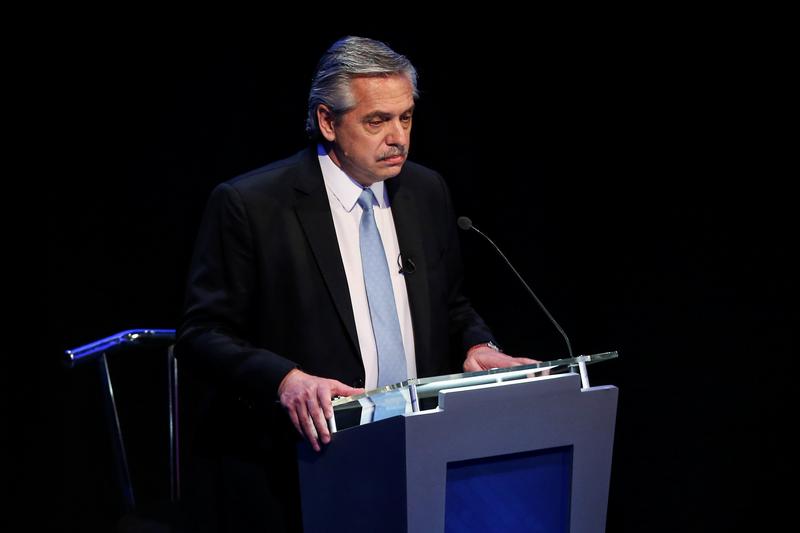ARGENTINE President Alberto Fernandez announced Friday he will not stand for reelection in October’s vote — a surprise move that deepened uncertainty in the crisis-wracked country.
The news comes as Latin America’s third-largest economy has seen inflation soar to almost 22 percent in the last three months and more than 100 percent over the last year.
Not only does Argentina have one of the highest inflation rates in the world, but the Argentine peso also suffers constant depreciation against the US dollar.
Fernandez’s center-left Frente de Todos (Everyone’s Front) coalition has yet to put forward a candidate for August’s primaries, with Fernandez declaring in his Friday video announcement that it needs to generate a new cycle of leaders.
“Next December 10, 2023, is the exact day on which we will mark 40 years of democracy. On this day I will hand over the presidential sash to whoever has been legitimately elected by popular vote at the polls,” Fernandez, 64, said in the clip.
At the end of last year, Vice President Cristina Kirchner, who was Argentina’s leader from 2007-15, said that she would not stand in the primaries.
That announcement came shortly after the 70-year-old was convicted of fraud and corruption during her presidency — although she has been spared prison by her parliamentary immunity.
Some press reports have portrayed Economy Minister Sergio Massa, 50, as a potential candidate.
“I will work fervently so that a comrade represents our political space,” said Fernandez in the nearly eight-minute video clip posted to Twitter.
On Thursday, the presidency published photos of a jovial meeting between Fernandez and Massa, largely interpreted as a way of responding to rumors that the economy minister was about to resign.
Fernandez has presided over a coalition riven by warring factions, not least between him and the highly influential Kirchner.
When Massa was appointed in July, he was the country’s third economy minister in less than a month.
Fernandez’s original appointment, Martin Guzman, had resigned under pressure from the Kirchner faction that was unhappy with his role in negotiating the restructuring of Argentina’s $44 billion debt with the International Monetary Fund.







